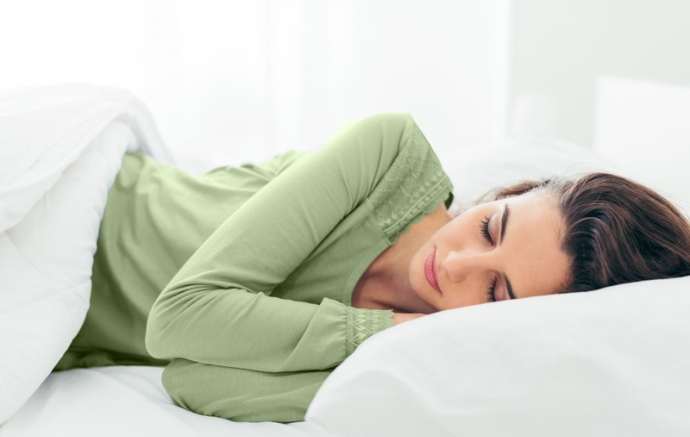What Are Sleep Disorders?
Sleep disorders are conditions that affect the quality, timing, or duration of sleep and impact a person's ability to function properly while awake. They can cause difficulties falling asleep, disrupted sleep duration, or waking up too early, as well as unusual behaviors during sleep (such as sleepwalking, night terrors, etc.).
These disorders can significantly affect an individual's overall well-being and increase the risk of developing other health problems, such as heart and neurological diseases, diabetes, and depression. There are many different types of sleep disorders, each with its own set of symptoms and treatment methods.
What Are the Most Common Types of Sleep Disorders and Their Characteristics?
According to scientific research, there are about 80 different types of sleep disorders, often grouped by their causes and characteristic symptoms. The causes can be diverse: genetic, psychological (anxiety and depression), medical (asthma and respiratory problems), as well as the use of certain medications or alcohol. Here are some of the most common disorders:
1. Insomnia
Insomnia is one of the most common sleep disorders and involves difficulties falling asleep or maintaining sleep. People with insomnia may experience several unpleasant symptoms, including:
- Difficulty falling asleep;
- Frequent waking during the night;
- Waking up too early in the morning;
- Feeling tired or fatigued during the day;
- Difficulty concentrating;
- Frequent mood changes and strong irritability; anxiety and worry.
2. Restless Legs Syndrome
This disorder causes unpleasant sensations in the legs and a strong urge to move them constantly. It is a sensorimotor disorder, and those affected experience unwanted and intrusive symptoms, including:
- Unpleasant sensations in the legs that can only be relieved by movement;
- Difficulty and distress falling asleep;
- Frequent awakenings during the night;
- Feeling very tired or fatigued during the day;
- Difficulty concentrating.
3. Narcolepsy
Narcolepsy is a congenital neurological disorder characterized by excessive daytime sleepiness and sudden, uncontrollable sleep attacks. People with narcolepsy commonly experience the following symptoms:
- Excessive and irresistible daytime sleepiness;
- Sudden sleep attacks that are hard to resist;
- Cataplexy – spontaneous and unpredictable loss of muscle tone causing weakness, sometimes even paralysis;
- Sleep paralysis – temporary inability to speak or move when falling asleep or waking up;
- Vivid dreams upon falling asleep or waking;
- Hallucinations.
4. Sleep Apnea
Sleep apnea is a chronic condition characterized by repeated interruptions in breathing during sleep. These interruptions cause frequent awakenings throughout the night and lead to various accompanying symptoms, including:
- Loud snoring;
- Gasping or choking during sleep;
- Waking up with headaches;
- Feeling tired or fatigued during the day;
- Difficulty concentrating and reduced work capacity;
- Mood deterioration and strong irritability.

What Are the Most Characteristic Symptoms of Sleep Disorders?
Different signs of sleep disturbances manifest in various ways at different times of the day. Observe and analyze the specific manifestations and symptoms of these disorders to diagnose problems more easily and effectively counteract them.
1. Symptoms of Disorders Falling Asleep
If you suffer from sleep disorders, they often show in the following symptoms before or while falling asleep:
- Difficulty falling asleep (taking more than 20 minutes to fall asleep);
- Racing thoughts – constant stream of thoughts before sleeping disrupting sleep;
- Hypnagogic hallucinations;
- Unexplained anxiety and strong excitement/hyperactivity;
- Sleep paralysis;
- Unpleasant sensations in the legs relieved by movement and massage;
2. Symptoms of Disorders During the Night
Sleep disturbances may also appear in various ways during the night, sometimes unnoticed. Some of the most common are:
- Inability to maintain continuous sleep (insomnia);
- Frequent awakenings with difficulty falling back asleep;
- Snoring and breathing pauses during sleep;
- Sleepwalking/somnambulism;
- Nightmares and talking in sleep;
- Waking up feeling short of breath and with rapid heartbeat;
- Frequent urination at night (>1 time);
- Excessive sweating in the upper body;
- Sudden limb movements during sleep;
- Teeth grinding or clenching (sometimes accompanied by enamel wear noticed by a dentist).
3. Symptoms of Disorders in the Morning
Restless sleep and disturbances also show their negative effects in the morning, right after waking. They usually include:
- Chronic fatigue;
- Severe headache upon waking;
- Muscle and joint pain accompanied by strong fatigue;
- Difficulty maintaining balance when getting out of bed;
- Red eyes; burning pain in the eyes;
- Dry mouth/throat;
- Sleep inertia – an overwhelming desire to fall asleep again and strong disorientation.
4. Symptoms of Disorders During the Day
The effects of disturbances that impact our ability to get restorative sleep are most noticeable in daily activities and how we handle routine tasks and responsibilities. The most striking negative manifestations include:
- Sleepiness, especially in quiet and calm places;
- Falling asleep while driving or riding in a car;
- Sudden sleep attacks without being able to stay awake;
- Weakening of legs and muscle strength, especially when experiencing positive emotions;
- Frequent mood swings;
- Reduced productivity – whether at school or work, lack of sleep inevitably leads to lower efficiency;
- Loss of ability to concentrate, focus, and stay alert.
Lack of sufficient sleep hours can negatively affect work performance, school/work results, interpersonal relationships, and physical and mental health. If you suspect even a minimal chance of having a sleep disorder, consult a specialist to prevent worsening of problems in time. We, at TED, always advise taking care of your sleep health and intentionally working on building good, healthy habits for a full and quality life.









